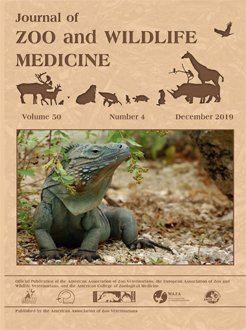Assessment of pododermatitis, osteoarthritis, and other causes of lameness in penguins can be challenging. Subjective gait analysis using visual observation and response to analgesic therapy can be affected by observer variation and caregiver placebo bias. A pressure-sensitive walkway (PSW), however, allows for objective gait analysis and assessment of analgesic therapeutic response. In this study, a 3-m-long PSW was used to analyze gait in 21 adult Humboldt penguins (Spheniscus humboldti). Medical record reviews and comprehensive examinations were performed on all penguins; five penguins were considered abnormal, with either right-sided (n = 3) or bilateral historical lameness-causing disease (n = 2) and were analyzed separately from the normal data set. All penguins walked across the PSW four times and gait parameters (step and stride distances and velocities, maximum force, impulse, and peak pressure) were calculated for each foot in each penguin. Statistical comparisons were made between right and left feet, sexes, and normal and abnormal penguins for each gait parameter. Among normal penguins, there were no significant differences between feet or sex. Left step width was shorter in abnormal penguins than that of normal penguins. Study results established baseline values for Humboldt penguins. This will allow objective monitoring of progression and response to therapy in penguin lameness cases, both current and future. The data also provide a foundation to compare gait parameters with other penguin populations and species.
How to translate text using browser tools
9 January 2020
OBJECTIVE GAIT ANALYSIS IN HUMBOLDT PENGUINS (SPHENISCUS HUMBOLDTI) USING A PRESSURE-SENSITIVE WALKWAY
Julie D. Sheldon,
Michael J. Adkesson,
Matthew C. Allender,
Julie A. Balko,
Ryan S. Bailey,
Jennifer N. Langan,
Sathya K. Chinnadurai
ACCESS THE FULL ARTICLE
Humboldt penguin
lameness
objective gait analysis
pressure-sensitive walkway
Spheniscus humboldti
Tekscan





